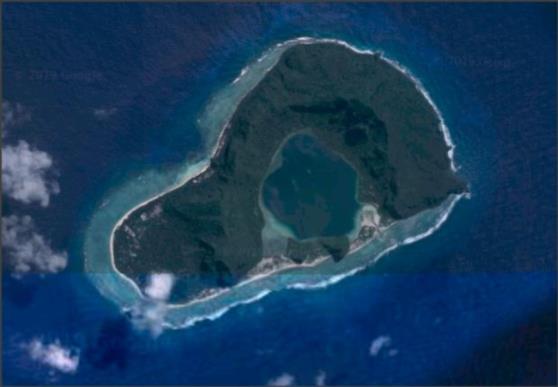
NavList:
A Community Devoted to the Preservation and Practice of Celestial Navigation and Other Methods of Traditional Wayfinding
From: Frank Reed
Date: 2019 Jun 29, 14:20 -0700
Brad, you may have noticed that Nainoa Thompson refers a couple of times to the Polynesian star-based navigation system as a "dead reckoning" system. What (I think) he was getting at is that the the system that they use is primarily an astro-compass system. In other words, it's not about position-finding except maybe with some minimal latitude indications, which are, as I mentioned, speculative.
In the low latitudes of the tropics, it's not too difficult to steer by the stars, to use the stars as an astro-compass. According to the descriptions that I have seen of the modern "traditional" system used by the Polynesian Voyaging Society (the group that operates Hokule'a), their navigators learn a series of star "streams" that define consistent compass directions. You would know a set of stars that rise at a particular compass direction in the early evening, follow them for a while, and then trade them off for the next set in the stream at that fixed heading an hour later, continuing this trading down the star stream through the night. That bypasses the problem with changing azimuths in a simple way. This works, of course, and it would allow a vessel to maintain a heading reasonably well over great distances, at least as well as in daylight. Clearly this is crude navigation, and it's celestial navigation only with a very broad definition of the term.
As you noted in a prior message, the geographic size of the extended targets makes this all possible. The Hawaiian chain is hundreds of miles long, and it also includes a tremendous volcanic peak which can be seen from great distances and affects clouds visible from even greater distances. Also, if we believe in return voyages occasionally returning to Tahiti and nearby islands, these are possible since the region east of Tahiti is the Tuamotu Archipelago which is a vast target for any vessel sailing southeast from Hawaii. Although the Pacific is huge, the atolls of that archipelago will catch almost any southeast-bound vessel coming from the northern Pacific. Find an island in the archipelago, and then turn right. You'll find inhabited islands soon enough (almost certainly with inhabitants speaking mutually-intelligible Polynesian dialects, and then all roads lead to Tahiti.
There are some exceedingly remote and small Polynesian islands which may not have been so fortunate. Return voyages to them may have been much more difficult. One of these, Tikopia, was apparently a model for Moana's home island in the film. Another, Anuta, has entered pop culture in Britain and pointlessly appeared in an episode of Doctor Who last year (buried Dalek bits). On the other hand, these Polynesian outliers are precisely the ones that have managed to survive with their culture nearly intact, scarcely changed from what it must have been a thousand years ago (with a thin veneer of Christianity on top and some modern tools like knives and gas lanterns but otherwise not badly eroded). Yet isolation is impossible in the 21st century, and they will have Internet access soon. What happens then? I don't think it will be good. How long until the children of Tikopia are singing songs from Disney's Moana??
Frank Reed







